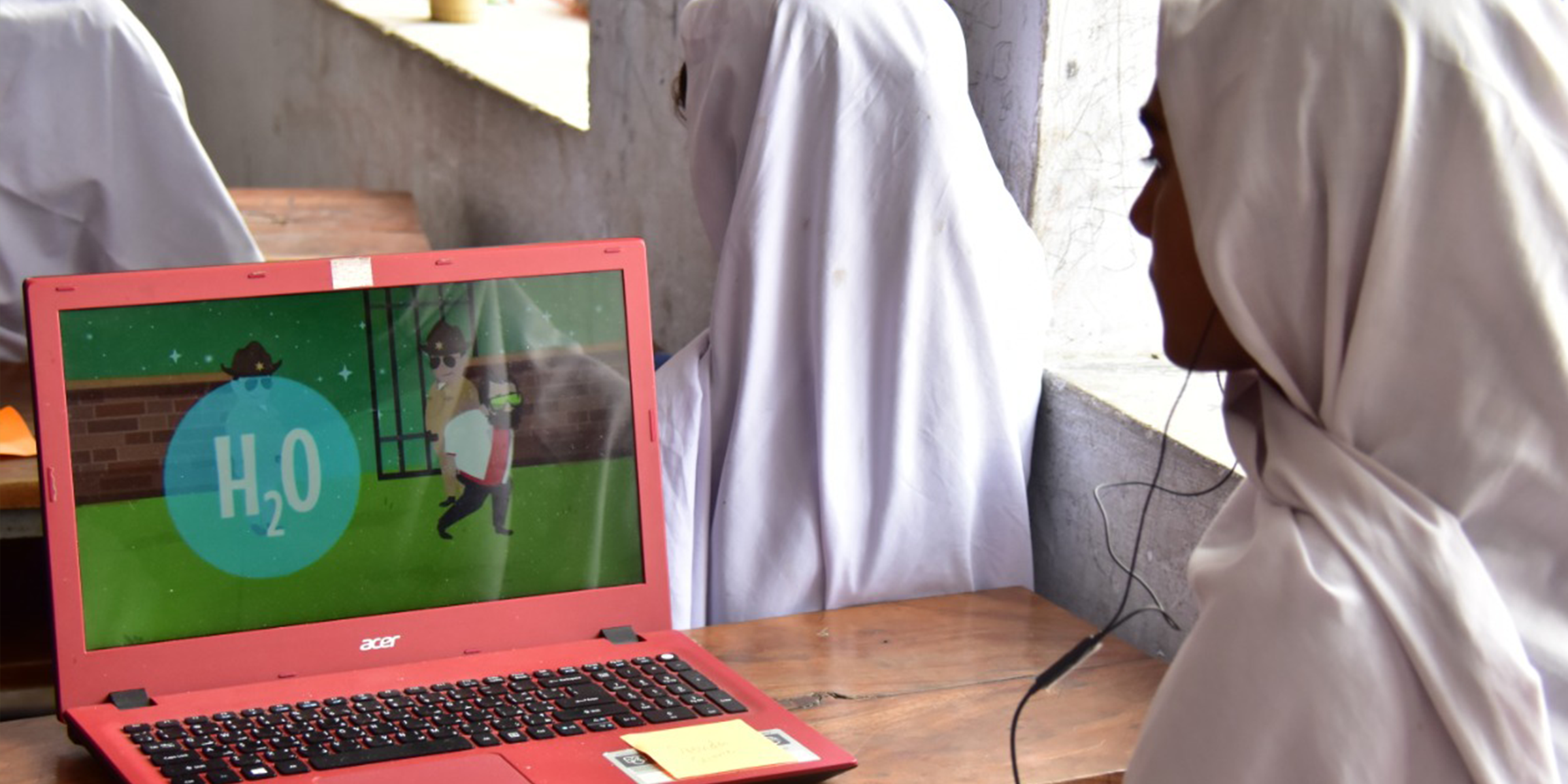
Pakistan has the second highest number of out-of-school children in the world and the majority are girls.
“The pandemic has changed people’s attitude towards digital education,” says tech entrepreneur and Malala Fund Education Champion Haroon Yasin. While schools in Pakistan remain closed due to COVID-19, many families are looking for tools to help their children learn from home. That’s where Haroon comes in.
In 2015, Haroon founded Orenda Project to provide high quality, engaging education to every child in Pakistan. Orenda digitised Pakistan’s national curriculum and developed Taleemabad, a mobile and web application that helps out-of-school children continue their studies online. The app serves students in grades K-12 and features more than 500 free video lessons. With millions of students studying from home due to the pandemic, Taleemabad is more popular than ever.
Prior to the COVID-19 crisis, Taleemabad had about 150,000 children using the platform. After schools closed in late March, Haroon saw a spike in activity — downloads rose 600%. To meet the growing demand, Haroon’s team is working hard and fast to add additional lessons to the app and offer more customer service support.
Orenda is also repurposing the app’s content to produce a children’s show, which is broadcast on a new government television channel called Teleschool. Supported PTV News, Teleschool helps students learn at home. Taleemabad’s show also airs on Taleem Ghar, a provincial channel in Punjab and Illm Exchange, a digital education content hub.
“The response to the Taleemabad series has been more generous than we had anticipated,” shares Haroon. “Many children from all over Pakistan send in their drawings. The subject of their masterpieces: Pinky and Jojo, two of the main characters.”
Airing Taleemabad on these channels means that Haroon has the potential to reach nearly 40 million children — there are 70 million children currently living in Pakistan. He is hopeful that this will help accelerate progress for education across the country. Pakistan has the second highest number of out-of-school children in the world and the majority are girls. In many communities, there aren’t enough schools for girls to attend or high tuition fees prevent them from enrolling.
As a Malala Fund Education Champion, Haroon has used his grant to expand the Taleemabad curriculum to include secondary education. He also trains teachers, community groups and district officials to use the app and reach even more out-of-school girls.
To ensure his work for girls’ education can continue during and after the COVID-19 crisis, Malala Fund provided Haroon with $50,000 of additional financial support. This grant is part of Malala Fund’s global COVID-19 initiative to help connect girls to alternative learning opportunities during the pandemic.
“Digital education offers a promising way to mitigate the losses [of the pandemic], both in terms of keeping learning levels progressing and preventing students from dropping out,” shares Haroon.
Taleemabad’s algorithm tracks a student’s progress as they move through lessons. It creates a report for students to see which subjects they excel at and which require additional work. The app remembers the lessons students struggle with and adapts to show them that content until their skills improve.
This data helps ensure students learn and builds parents’ trust in the quality of the technology. “[With digital learning] parents are going to be more involved in their child’s education… this has been linked with higher learning gains and lower chances of the child dropping out,” explains Haroon. Orenda reports that schools using Taleemabad saw students’ test scores improve by 31% and their dropout rates decrease by 70%.
Haroon’s goal is to reach one million active users and that schools across the country use it to supplement their lessons. The more students that use the app means the more data Haroon has on the effectiveness of the national curriculum in different areas. For example, if many students from a district exhibited weakness in a certain subject, Haroon could alert the local education officials to update that part of the curriculum.
“The pandemic has changed people’s attitude towards digital education, not just in Pakistan but all over the world,” says Haroon as more young people are learning online and leaders are starting to acknowledge that e-learning is a valuable resource. “This presents an exciting opportunity to take learning beyond just division and grammar and take it wider, to encompass a more holistic education.”
